20+ Essential Signs a Widow Is Struggling to Cope
By Juliet S
1 year ago
 When a widow begins experiencing drastic alterations in sleep—whether it's battling insomnia or oversleeping—it often signals a substantial struggle with grief. Such changes not only reflect emotional turmoil but can also significantly impact physical health. Recognizing this sign can offer critical insights into their well-being and opens up pathways for needed support and intervention.
When a widow begins experiencing drastic alterations in sleep—whether it's battling insomnia or oversleeping—it often signals a substantial struggle with grief. Such changes not only reflect emotional turmoil but can also significantly impact physical health. Recognizing this sign can offer critical insights into their well-being and opens up pathways for needed support and intervention. A once vibrant life can dim when a widow loses interest in hobbies and activities that used to bring joy. This profound disconnection might indicate a deeper emotional distress. As friends or family, it's pivotal to gently encourage engagement, perhaps by suggesting joint activities, to spark a bit of the joy that has been overshadowed by grief.
A once vibrant life can dim when a widow loses interest in hobbies and activities that used to bring joy. This profound disconnection might indicate a deeper emotional distress. As friends or family, it's pivotal to gently encourage engagement, perhaps by suggesting joint activities, to spark a bit of the joy that has been overshadowed by grief. If a widow is retreating from social gatherings and interactions, it may be more than just a need for quiet reflection. This withdrawal can be a larger sign of depression or anxiety. Engaging with them through regular communication and offering inclusive, low-pressure gatherings can provide a supportive bridge back to social connectivity.
If a widow is retreating from social gatherings and interactions, it may be more than just a need for quiet reflection. This withdrawal can be a larger sign of depression or anxiety. Engaging with them through regular communication and offering inclusive, low-pressure gatherings can provide a supportive bridge back to social connectivity. When grief takes over, self-care routines such as personal hygiene often take a backseat, which can exacerbate feelings of unworthiness and depression. If you notice a decline in a widow’s grooming and cleanliness, it’s important to approach them with compassion, possibly offering support through routine check-ins or assistance with daily tasks.
When grief takes over, self-care routines such as personal hygiene often take a backseat, which can exacerbate feelings of unworthiness and depression. If you notice a decline in a widow’s grooming and cleanliness, it’s important to approach them with compassion, possibly offering support through routine check-ins or assistance with daily tasks.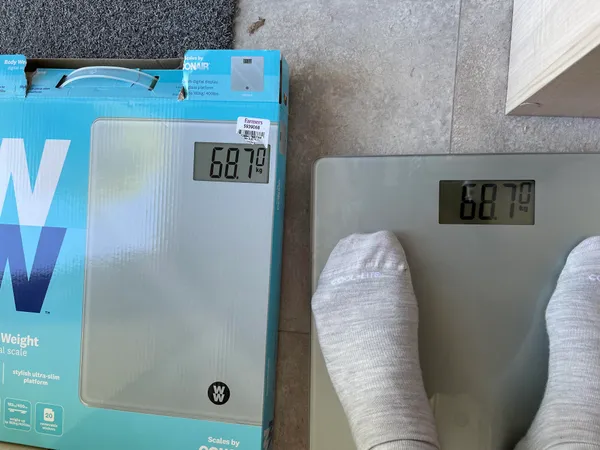 Significant weight loss or gain in a widow might not just be dietary choices, but one of the more critical indicators of struggling with grief. This physical manifestation of emotional distress requires attentive care, understanding, and potentially professional help to address the underlying emotional triggers and to promote healthier habits.
Significant weight loss or gain in a widow might not just be dietary choices, but one of the more critical indicators of struggling with grief. This physical manifestation of emotional distress requires attentive care, understanding, and potentially professional help to address the underlying emotional triggers and to promote healthier habits. Coping with loss often leads to heightened emotions. It's common for widows to experience sudden surges of irritability or anger. These strong emotions can be confusing and exhausting, making it difficult for them to manage daily interactions. Recognizing these signs is crucial for providing the right support and understanding needed during such turbulent times.
Coping with loss often leads to heightened emotions. It's common for widows to experience sudden surges of irritability or anger. These strong emotions can be confusing and exhausting, making it difficult for them to manage daily interactions. Recognizing these signs is crucial for providing the right support and understanding needed during such turbulent times. Many widows wrestle with persistent feelings of guilt after losing a spouse. Whether it’s questioning decisions made before their spouse passed or feeling guilty for surviving, these feelings can form a heavy emotional burden. Understanding and addressing these feelings is essential in helping them navigate their path to healing.
Many widows wrestle with persistent feelings of guilt after losing a spouse. Whether it’s questioning decisions made before their spouse passed or feeling guilty for surviving, these feelings can form a heavy emotional burden. Understanding and addressing these feelings is essential in helping them navigate their path to healing. Losing a spouse can make even the smallest decisions seem daunting. Widows may struggle with choosing daily meals or selecting what to wear, highlighting a broader difficulty in making decisions. This indecisiveness is a common sign of the overwhelming impact that grief can have on one’s mental clarity and emotional reserves.
Losing a spouse can make even the smallest decisions seem daunting. Widows may struggle with choosing daily meals or selecting what to wear, highlighting a broader difficulty in making decisions. This indecisiveness is a common sign of the overwhelming impact that grief can have on one’s mental clarity and emotional reserves. Expressions of hopelessness can often surface in conversations with widows struggling to cope. Whether they speak about the future with bleak prospects or show a general disinterest in life’s activities, these are profound indicators of their internal struggle. Such expressions underscore the need for sensitive and supportive dialogues to help foster hope and recovery.
Expressions of hopelessness can often surface in conversations with widows struggling to cope. Whether they speak about the future with bleak prospects or show a general disinterest in life’s activities, these are profound indicators of their internal struggle. Such expressions underscore the need for sensitive and supportive dialogues to help foster hope and recovery.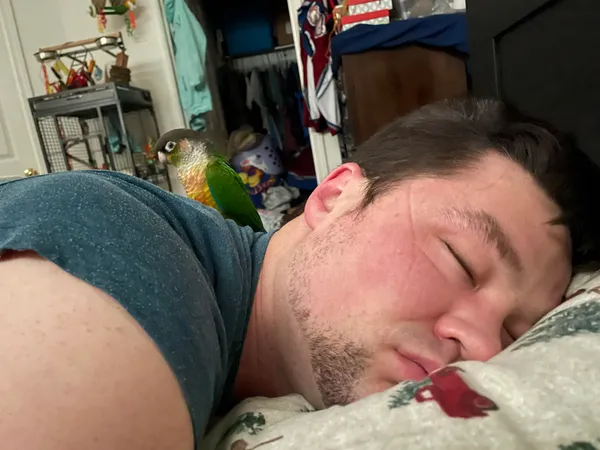 A profound loss can drain the drive to engage in daily activities. For widows, this lack of motivation might manifest as neglecting personal care, withdrawing from social activities, or a diminished interest in hobbies they once loved. Observing these changes can be concerning; offering a supportive presence can encourage them to take small, manageable steps forward.
A profound loss can drain the drive to engage in daily activities. For widows, this lack of motivation might manifest as neglecting personal care, withdrawing from social activities, or a diminished interest in hobbies they once loved. Observing these changes can be concerning; offering a supportive presence can encourage them to take small, manageable steps forward. For many experiencing grief, certain locations, items, or even songs that remind them of their spouse can become overwhelmingly painful. This slide delves into why some widows may start avoiding these memory triggers. It's a protective mechanism that reflects the depth of their connection and the intensity of their loss. The avoidance can manifest subtly, from changing daily routes to outright removing certain items from sight.
For many experiencing grief, certain locations, items, or even songs that remind them of their spouse can become overwhelmingly painful. This slide delves into why some widows may start avoiding these memory triggers. It's a protective mechanism that reflects the depth of their connection and the intensity of their loss. The avoidance can manifest subtly, from changing daily routes to outright removing certain items from sight.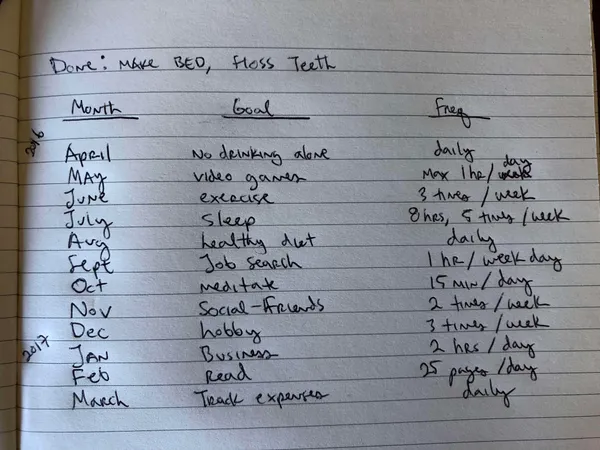 Losing a spouse can often result in a profound loss of purpose for widows. This slide explores how the absence of their partner may leave them questioning their role and future, leading to feelings of emptiness and aimlessness. We discuss how this significant change impacts their sense of identity and daily motivation, and the importance of finding new sources of meaning and joy.
Losing a spouse can often result in a profound loss of purpose for widows. This slide explores how the absence of their partner may leave them questioning their role and future, leading to feelings of emptiness and aimlessness. We discuss how this significant change impacts their sense of identity and daily motivation, and the importance of finding new sources of meaning and joy. It's common for widows to experience intense waves of grief that manifest as frequent crying spells. This emotional expression is a crucial part of the healing process. In this discussion, we will understand how crying helps process the profound sorrow and begins the journey of recovery. It’s a sign that the widow is working through the tragedy, not that they are failing to manage their grief.
It's common for widows to experience intense waves of grief that manifest as frequent crying spells. This emotional expression is a crucial part of the healing process. In this discussion, we will understand how crying helps process the profound sorrow and begins the journey of recovery. It’s a sign that the widow is working through the tragedy, not that they are failing to manage their grief. The uncertainty after losing a spouse can often lead to heightened anxiety or even panic attacks. This slide examines how the sudden change and fear of the future can trigger severe anxiety, disrupting a widow’s normal way of life. We cover coping mechanisms and the importance of seeking professional help to manage these intense reactions effectively.
The uncertainty after losing a spouse can often lead to heightened anxiety or even panic attacks. This slide examines how the sudden change and fear of the future can trigger severe anxiety, disrupting a widow’s normal way of life. We cover coping mechanisms and the importance of seeking professional help to manage these intense reactions effectively. In an attempt to numb the pain of loss, some widows may turn to alcohol or drugs. This slide addresses the pitfalls of substance abuse during grief, which can complicate and delay the healing process. We discuss healthier coping strategies, the need for supportive networks, and professional guidance to overcome reliance on substances for emotional escape.
In an attempt to numb the pain of loss, some widows may turn to alcohol or drugs. This slide addresses the pitfalls of substance abuse during grief, which can complicate and delay the healing process. We discuss healthier coping strategies, the need for supportive networks, and professional guidance to overcome reliance on substances for emotional escape.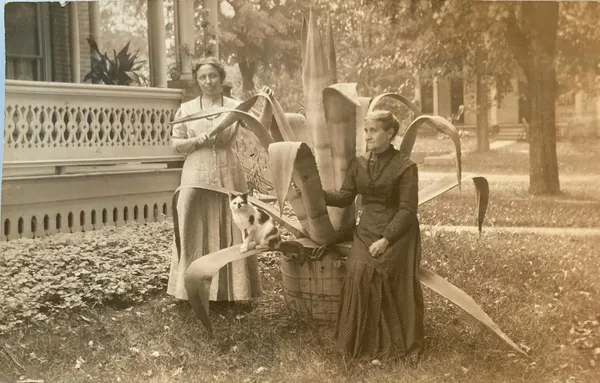 When a widow continuously dwells on memories and past events, it may indicate difficulty in moving forward. It’s natural to reflect on precious moments, but obsessive rumination can stall the healing process. Recognizing this pattern is essential for offering support that encourages present-focused thinking and new experiences.
When a widow continuously dwells on memories and past events, it may indicate difficulty in moving forward. It’s natural to reflect on precious moments, but obsessive rumination can stall the healing process. Recognizing this pattern is essential for offering support that encourages present-focused thinking and new experiences. Depression can be a significant barrier in the journey of coping. Signs such as prolonged sadness, loss of interest in daily activities, or changes in sleep and appetite are crucial indicators. Understanding and acknowledging these symptoms can lead to necessary support, whether it’s professional help or compassionate companionship.
Depression can be a significant barrier in the journey of coping. Signs such as prolonged sadness, loss of interest in daily activities, or changes in sleep and appetite are crucial indicators. Understanding and acknowledging these symptoms can lead to necessary support, whether it’s professional help or compassionate companionship. A noticeable reluctance to discuss or plan for the future can be a poignant sign of a widow struggling to envision life ahead. This avoidance may stem from fear or uncertainty of facing life alone. Encouragement and gentle conversations about future possibilities can be instrumental in restoring hope.
A noticeable reluctance to discuss or plan for the future can be a poignant sign of a widow struggling to envision life ahead. This avoidance may stem from fear or uncertainty of facing life alone. Encouragement and gentle conversations about future possibilities can be instrumental in restoring hope. A sudden lack of interest in managing finances or making plans for the future can signal overwhelmed feelings or denial. Addressing this head-on with empathetic dialogue and offering to help sort out these aspects can provide a sense of control and security during turbulent times.
A sudden lack of interest in managing finances or making plans for the future can signal overwhelmed feelings or denial. Addressing this head-on with empathetic dialogue and offering to help sort out these aspects can provide a sense of control and security during turbulent times.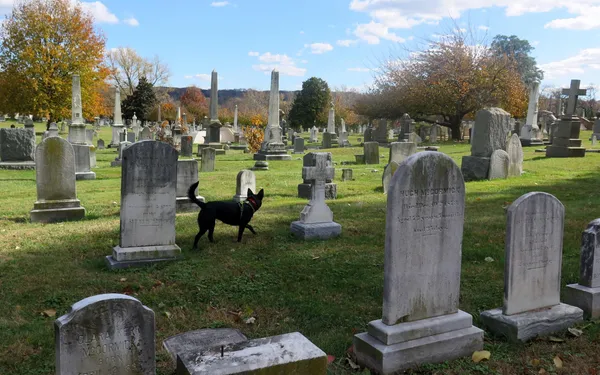 Resistance to talk about the deceased can signify that a widow is finding it exceedingly painful to recall their loved one without experiencing intense grief. This avoidant behavior is a natural defense mechanism, but talking at the right moments about the deceased can serve as a healing outlet.
Resistance to talk about the deceased can signify that a widow is finding it exceedingly painful to recall their loved one without experiencing intense grief. This avoidant behavior is a natural defense mechanism, but talking at the right moments about the deceased can serve as a healing outlet.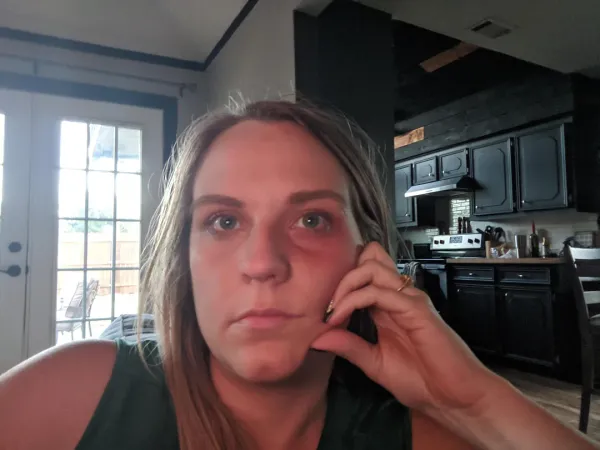 When a widow is grappling with grief, the stress can often lead to physical symptoms such as chronic headaches, muscle tension, and persistent fatigue. These physical signs are important cues, indicating that the emotional weight of their loss is manifesting in bodily discomfort. Recognizing these symptoms can be a crucial step in acknowledging their need for support in coping with their grief.
When a widow is grappling with grief, the stress can often lead to physical symptoms such as chronic headaches, muscle tension, and persistent fatigue. These physical signs are important cues, indicating that the emotional weight of their loss is manifesting in bodily discomfort. Recognizing these symptoms can be a crucial step in acknowledging their need for support in coping with their grief. In an attempt to numb their pain or fill a void left by their spouse, some widows may begin to engage in risky behaviors. This could range from reckless driving to substance abuse. It’s a sign that they're struggling to cope with their loss and may not have access to healthier coping strategies. Understanding these actions as a cry for help is crucial in providing the right support and guidance.
In an attempt to numb their pain or fill a void left by their spouse, some widows may begin to engage in risky behaviors. This could range from reckless driving to substance abuse. It’s a sign that they're struggling to cope with their loss and may not have access to healthier coping strategies. Understanding these actions as a cry for help is crucial in providing the right support and guidance. It’s common for widows to retreat into solitude, cutting off ties with even their closest family and friends. This isolation can be a defensive mechanism against the pain of their loss. If you notice a loved one withdrawing after the loss of a spouse, it's important to provide them with understanding and gentle encouragement to help them reconnect and feel supported.
It’s common for widows to retreat into solitude, cutting off ties with even their closest family and friends. This isolation can be a defensive mechanism against the pain of their loss. If you notice a loved one withdrawing after the loss of a spouse, it's important to provide them with understanding and gentle encouragement to help them reconnect and feel supported. A clear sign of struggle in a widow might be their sudden disinterest in hobbies and activities they once loved. This disengagement isn't just a minor change in preferences; it’s an alarming indication that they are unable to find pleasure in life as they once did. Offering to join them in these activities can gently help them regain the joy they once found.
A clear sign of struggle in a widow might be their sudden disinterest in hobbies and activities they once loved. This disengagement isn't just a minor change in preferences; it’s an alarming indication that they are unable to find pleasure in life as they once did. Offering to join them in these activities can gently help them regain the joy they once found.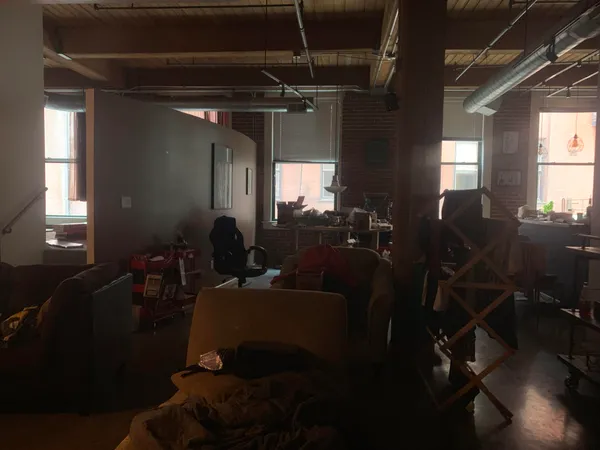 One of the most profound struggles a widow may face is an overwhelming sense of loneliness. This isn’t just about being alone; it’s a deep-seated feeling of being isolated from the world. It’s crucial for friends and family to understand that this loneliness is an intense and real part of their grief, requiring compassionate companionship and patient support.
One of the most profound struggles a widow may face is an overwhelming sense of loneliness. This isn’t just about being alone; it’s a deep-seated feeling of being isolated from the world. It’s crucial for friends and family to understand that this loneliness is an intense and real part of their grief, requiring compassionate companionship and patient support. For a widow, anniversaries and birthdays aren't just dates on a calendar; they're poignant reminders of a shared past now gone. It's common for widows to prefer solitude on these significant days, seeking private moments to reminisce or grieve. This preference for being alone can be a sign they're struggling with the pain of their loss, finding it hard to celebrate or reflect in the presence of others.
For a widow, anniversaries and birthdays aren't just dates on a calendar; they're poignant reminders of a shared past now gone. It's common for widows to prefer solitude on these significant days, seeking private moments to reminisce or grieve. This preference for being alone can be a sign they're struggling with the pain of their loss, finding it hard to celebrate or reflect in the presence of others.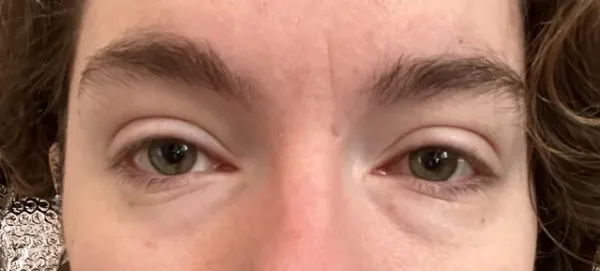 Over time, the intense grief a widow feels can sometimes transform into a persistent numbness, a kind of emotional blunting. This isn't just a phase but a profound change in feeling, where joy, sorrow, or anger no longer touch the surface. Such numbness is a red flag, indicating a deep struggle with unresolved grief and an inability to process complex emotions after the loss.
Over time, the intense grief a widow feels can sometimes transform into a persistent numbness, a kind of emotional blunting. This isn't just a phase but a profound change in feeling, where joy, sorrow, or anger no longer touch the surface. Such numbness is a red flag, indicating a deep struggle with unresolved grief and an inability to process complex emotions after the loss.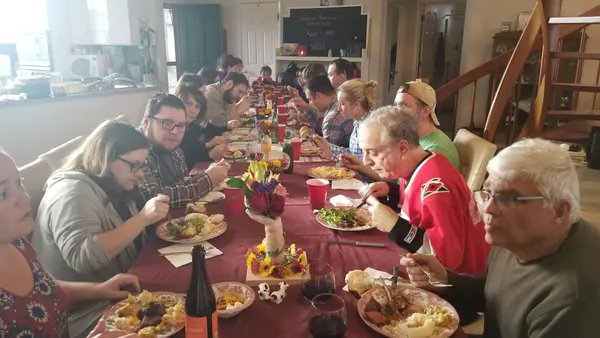 After the loss of a spouse, it's normal for widows to reach out more frequently to family and friends. However, an increased dependence where the widow relies heavily on others for daily functions or emotional support might be a sign of struggling to adapt to life alone. This dependency can hint at the widow's challenge in finding a new sense of normalcy and independence.
After the loss of a spouse, it's normal for widows to reach out more frequently to family and friends. However, an increased dependence where the widow relies heavily on others for daily functions or emotional support might be a sign of struggling to adapt to life alone. This dependency can hint at the widow's challenge in finding a new sense of normalcy and independence. Everyday tasks can suddenly seem insurmountable to someone grieving a profound loss. For widows, simple activities like cooking, cleaning, or managing finances can feel overwhelming. This paralysis over routine chores is a clear indication that the widow is finding it difficult to cope with their loss, unable to focus on the day-to-day when their emotional resources are depleted.
Everyday tasks can suddenly seem insurmountable to someone grieving a profound loss. For widows, simple activities like cooking, cleaning, or managing finances can feel overwhelming. This paralysis over routine chores is a clear indication that the widow is finding it difficult to cope with their loss, unable to focus on the day-to-day when their emotional resources are depleted. It's natural for a widow to cling to physical items that belonged to their deceased spouse as a way to maintain a connection. Wearing their spouse's clothing or keeping their belongings just as they were can be comforting. However, an unwillingness to move or alter these items can signify a struggle to accept the reality of the loss and move forward emotionally.
It's natural for a widow to cling to physical items that belonged to their deceased spouse as a way to maintain a connection. Wearing their spouse's clothing or keeping their belongings just as they were can be comforting. However, an unwillingness to move or alter these items can signify a struggle to accept the reality of the loss and move forward emotionally.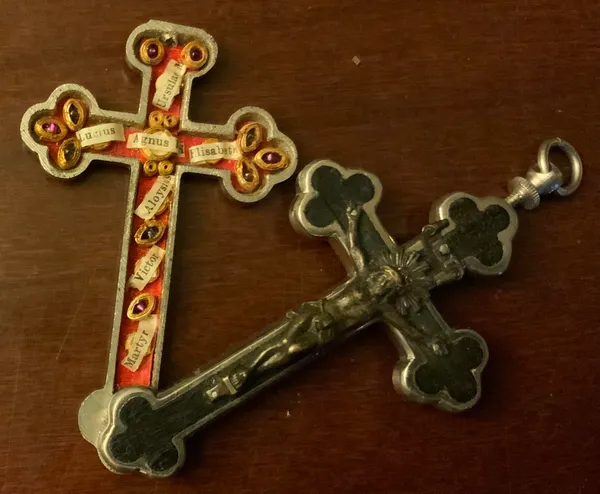 It's not uncommon for a widow to reevaluate her spiritual beliefs after the loss of a spouse. This period of deep introspection can lead to questions about the purpose of suffering, the afterlife, and the role of a higher power in such painful events. Being supportive during these transformative moments can help ease their emotional and spiritual journey.
It's not uncommon for a widow to reevaluate her spiritual beliefs after the loss of a spouse. This period of deep introspection can lead to questions about the purpose of suffering, the afterlife, and the role of a higher power in such painful events. Being supportive during these transformative moments can help ease their emotional and spiritual journey. When going through the profound grief of losing a spouse, it's common to see significant changes in eating habits. A widow may either lose her appetite entirely, skipping meals, or might alternate to comfort eating. This change can be a sign of emotional distress, as food intake often reflects our mental state. Keeping an eye on such transformations in appetite can provide insights into a widow’s coping process, helping friends and family offer the necessary support during this tough time.
When going through the profound grief of losing a spouse, it's common to see significant changes in eating habits. A widow may either lose her appetite entirely, skipping meals, or might alternate to comfort eating. This change can be a sign of emotional distress, as food intake often reflects our mental state. Keeping an eye on such transformations in appetite can provide insights into a widow’s coping process, helping friends and family offer the necessary support during this tough time. It's common for widows to experience unpredictable waves of energy and motivation, followed by moments of deep sadness or lack of drive. This rollercoaster, often intense and confounding, marks a significant struggle in coping. Observing these swift changes can help friends and family provide the right support at the right times, ensuring the widow does not face her emotional journey alone.
It's common for widows to experience unpredictable waves of energy and motivation, followed by moments of deep sadness or lack of drive. This rollercoaster, often intense and confounding, marks a significant struggle in coping. Observing these swift changes can help friends and family provide the right support at the right times, ensuring the widow does not face her emotional journey alone.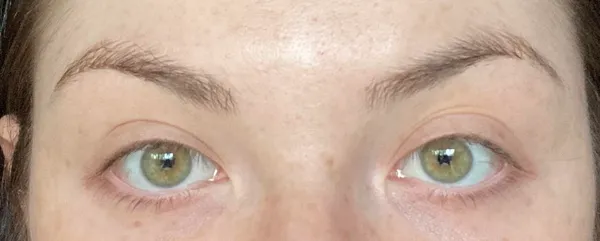 After losing their spouse, many widows experience difficulty concentrating. This challenge can manifest in everyday tasks, including forgetting appointments, losing track of time, or struggling to maintain focus at work. It's a significant sign that they might be grappling with the overwhelming emotions that come with grief. Understanding and supporting them through this time is crucial in helping them adapt to their new normal.
After losing their spouse, many widows experience difficulty concentrating. This challenge can manifest in everyday tasks, including forgetting appointments, losing track of time, or struggling to maintain focus at work. It's a significant sign that they might be grappling with the overwhelming emotions that come with grief. Understanding and supporting them through this time is crucial in helping them adapt to their new normal. After losing a spouse, it's common for widows to experience vivid dreams or nightmares involving their late partner. These intense dreams can disrupt sleep and exacerbate feelings of loss, making it hard to find peace at night. Understanding this phenomenon can help in seeking appropriate support and acknowledging these dreams as a natural part of the grieving process.
After losing a spouse, it's common for widows to experience vivid dreams or nightmares involving their late partner. These intense dreams can disrupt sleep and exacerbate feelings of loss, making it hard to find peace at night. Understanding this phenomenon can help in seeking appropriate support and acknowledging these dreams as a natural part of the grieving process. In the aftermath of loss, widows might try to fill the void by overcompensating with tasks and responsibilities. Whether it’s an attempt to distract themselves from their grief or a way to prove they can manage alone, this overwhelming load can lead to burnout and stress. Recognizing this pattern is vital to encourage them to set realistic expectations and seek help when needed.
In the aftermath of loss, widows might try to fill the void by overcompensating with tasks and responsibilities. Whether it’s an attempt to distract themselves from their grief or a way to prove they can manage alone, this overwhelming load can lead to burnout and stress. Recognizing this pattern is vital to encourage them to set realistic expectations and seek help when needed. The grief journey can strain even the strongest friendships. A widow may find herself withdrawing or feeling misunderstood by friends who are still coupled, leading to deteriorating relationships. Highlighting the importance of open communication and mutual understanding can guide widows and their friends to maintain and strengthen their connections during these hard times.
The grief journey can strain even the strongest friendships. A widow may find herself withdrawing or feeling misunderstood by friends who are still coupled, leading to deteriorating relationships. Highlighting the importance of open communication and mutual understanding can guide widows and their friends to maintain and strengthen their connections during these hard times. Grieving can cloud judgment, leading to impulsive decisions, especially concerning finances. Whether it’s an uncharacteristic splurge or a risky investment, these decisions can jeopardize financial stability. It's essential to encourage those grieving to seek professional financial advice or involve a trusted friend before making significant financial changes.
Grieving can cloud judgment, leading to impulsive decisions, especially concerning finances. Whether it’s an uncharacteristic splurge or a risky investment, these decisions can jeopardize financial stability. It's essential to encourage those grieving to seek professional financial advice or involve a trusted friend before making significant financial changes.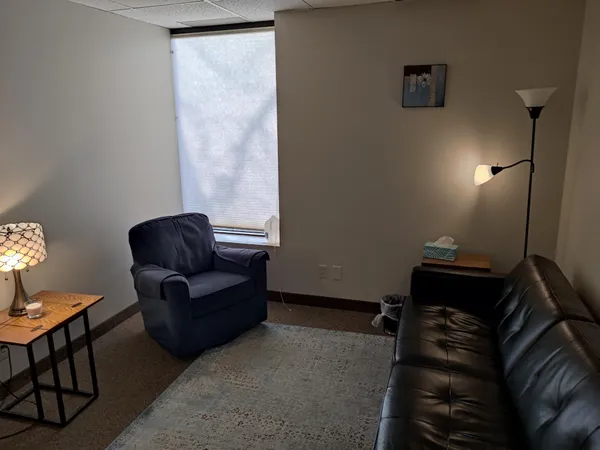 Widows may sometimes resent advice from others, feeling that no one truly understands their situation. This resistance can isolate them further. It's crucial to approach such sensitivities with empathy, ensuring that support is gentle and non-imposing, allowing the widow to remain receptive to help that can aid in her healing journey.
Widows may sometimes resent advice from others, feeling that no one truly understands their situation. This resistance can isolate them further. It's crucial to approach such sensitivities with empathy, ensuring that support is gentle and non-imposing, allowing the widow to remain receptive to help that can aid in her healing journey. A common sign that a widow may be struggling to cope is an increased frequency of doctor visits. Whether addressing specific health issues or seeking comfort in medical advice, these visits can suggest unresolved grief or anxiety manifesting physically. It's important to consider how emotional stress might be impacting their overall well-being.
A common sign that a widow may be struggling to cope is an increased frequency of doctor visits. Whether addressing specific health issues or seeking comfort in medical advice, these visits can suggest unresolved grief or anxiety manifesting physically. It's important to consider how emotional stress might be impacting their overall well-being. If a widow predominantly talks about their late spouse in social settings, it can be an indication of their difficulty in moving forward. This recurring focus might show that they are still heavily anchored in their past experiences and memories, possibly hindering their emotional journey towards healing.
If a widow predominantly talks about their late spouse in social settings, it can be an indication of their difficulty in moving forward. This recurring focus might show that they are still heavily anchored in their past experiences and memories, possibly hindering their emotional journey towards healing. Behaving in ways that seem out of character can be a distress signal from a widow who is having trouble coping. Whether it’s sudden anger, withdrawal, or risk-taking, these changes can signify a need for help and understanding from friends and family to navigate through this turbulent chapter of their life.
Behaving in ways that seem out of character can be a distress signal from a widow who is having trouble coping. Whether it’s sudden anger, withdrawal, or risk-taking, these changes can signify a need for help and understanding from friends and family to navigate through this turbulent chapter of their life.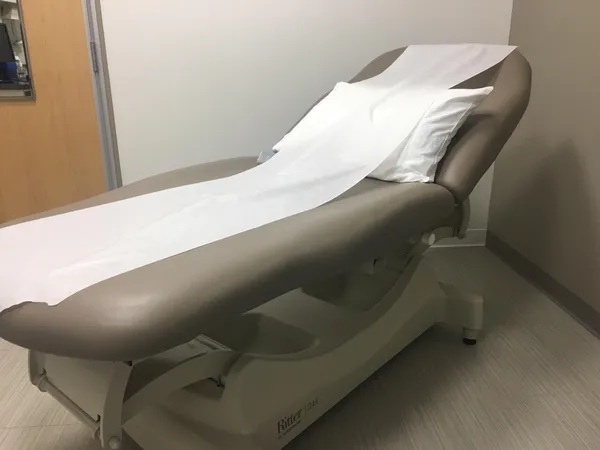 A hyper-focus on personal health issues is not uncommon among those grieving. A widow might become overly concerned with their own health as a reflection of the trauma of losing a spouse. Staying vigilant about one's health is positive, but obsession may indicate deeper issues related to loss and fear of the future.
A hyper-focus on personal health issues is not uncommon among those grieving. A widow might become overly concerned with their own health as a reflection of the trauma of losing a spouse. Staying vigilant about one's health is positive, but obsession may indicate deeper issues related to loss and fear of the future. An uptick in obsessive organization or cleaning can be a coping mechanism for widows seeking control in their lives during a period of emotional chaos. While cleanliness can be therapeutic, if it turns compulsive, it may imply that the widow is using it as a method to distract from addressing deeper emotional grief.
An uptick in obsessive organization or cleaning can be a coping mechanism for widows seeking control in their lives during a period of emotional chaos. While cleanliness can be therapeutic, if it turns compulsive, it may imply that the widow is using it as a method to distract from addressing deeper emotional grief. After losing a spouse, the landscape of social interactions can appear daunting. Widows often feel a heightened sense of insecurity when engaging socially, due to the absence of their partner. This can manifest as nervousness or reluctance to attend gatherings, and may lead to increasing isolation. Recognizing and addressing these feelings in ourselves or others is crucial for healing and reconnecting.
After losing a spouse, the landscape of social interactions can appear daunting. Widows often feel a heightened sense of insecurity when engaging socially, due to the absence of their partner. This can manifest as nervousness or reluctance to attend gatherings, and may lead to increasing isolation. Recognizing and addressing these feelings in ourselves or others is crucial for healing and reconnecting.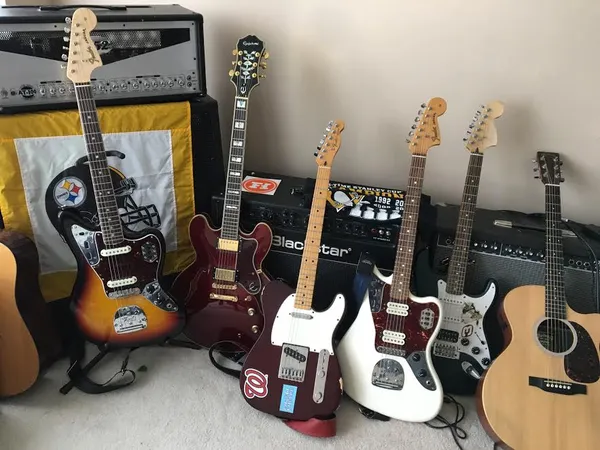 It's not uncommon for widows to lose interest in hobbies and activities they once enjoyed. This shift is usually a sign of deeper emotional distress, as these pursuits often remind them of times spent with their deceased spouse. Addressing this avoidance can be the first step toward re-engaging with life and finding joy in new or adapted interests that honor their past while embracing the future.
It's not uncommon for widows to lose interest in hobbies and activities they once enjoyed. This shift is usually a sign of deeper emotional distress, as these pursuits often remind them of times spent with their deceased spouse. Addressing this avoidance can be the first step toward re-engaging with life and finding joy in new or adapted interests that honor their past while embracing the future. Widows might find themselves either obsessively using social media as a lifeline to others or completely withdrawing from these platforms. Overuse can act as a temporary salve for loneliness, whereas withdrawal might indicate an attempt to avoid reminders of their loss. Understanding the impacts of social media usage and encouraging healthy digital habits can help maintain a balanced emotional state.
Widows might find themselves either obsessively using social media as a lifeline to others or completely withdrawing from these platforms. Overuse can act as a temporary salve for loneliness, whereas withdrawal might indicate an attempt to avoid reminders of their loss. Understanding the impacts of social media usage and encouraging healthy digital habits can help maintain a balanced emotional state.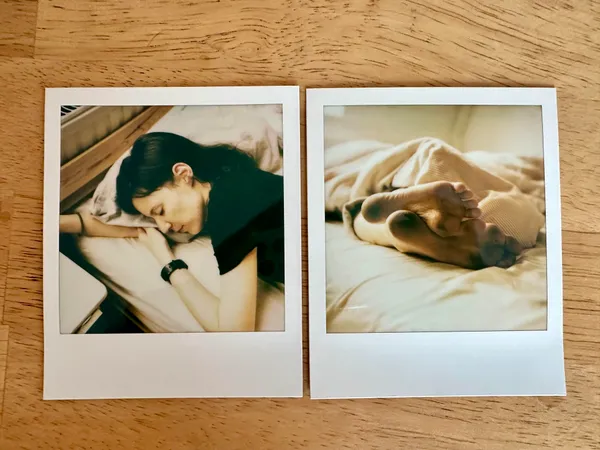 Retreating into the past can be a comfortable sanctuary for widows. However, when isolation accompanies the frequent revisiting of memories, it might suggest difficulty in dealing with the present and anxiety about the future. Gently encouraging participation in supportive groups or activities can help bridge the gap between cherished memories and the possibilities of now.
Retreating into the past can be a comfortable sanctuary for widows. However, when isolation accompanies the frequent revisiting of memories, it might suggest difficulty in dealing with the present and anxiety about the future. Gently encouraging participation in supportive groups or activities can help bridge the gap between cherished memories and the possibilities of now. Expressions of a desire to reunite with a deceased spouse can be heart-wrenching. They illustrate the depth of the widow's grief and the struggle to accept the permanence of loss. Compassionate communication and professional support can be vital in helping them navigate through this profound longing, fostering a path toward healing while honoring their profound love.
Expressions of a desire to reunite with a deceased spouse can be heart-wrenching. They illustrate the depth of the widow's grief and the struggle to accept the permanence of loss. Compassionate communication and professional support can be vital in helping them navigate through this profound longing, fostering a path toward healing while honoring their profound love.